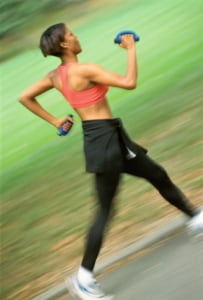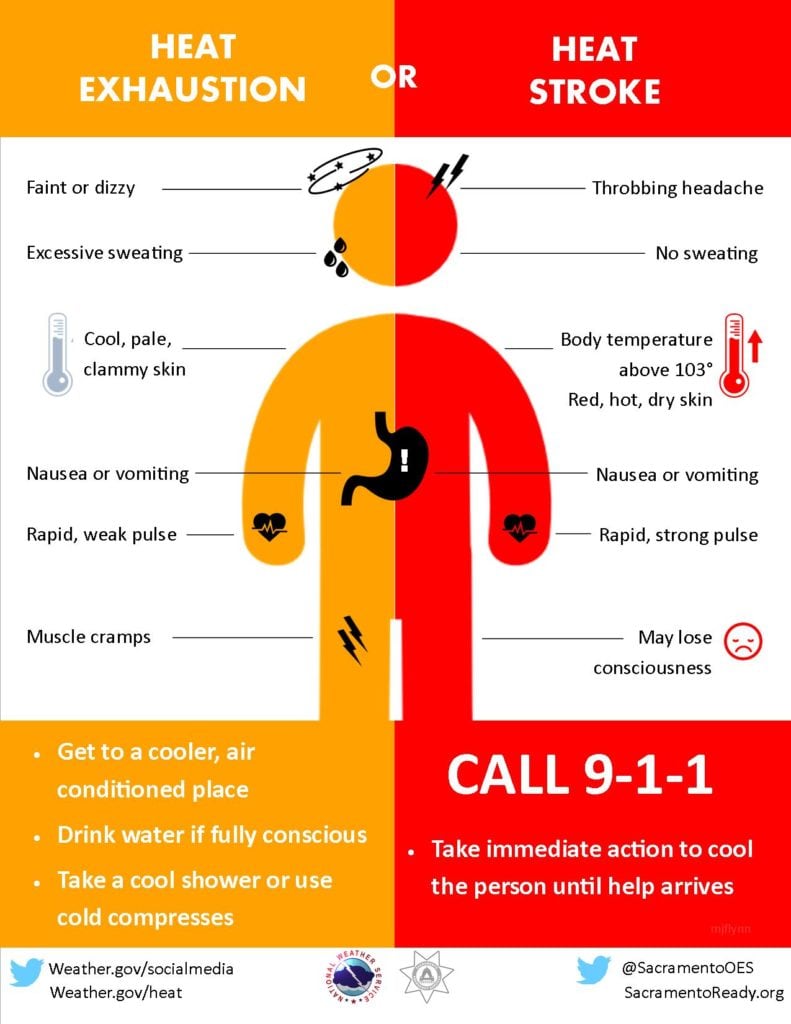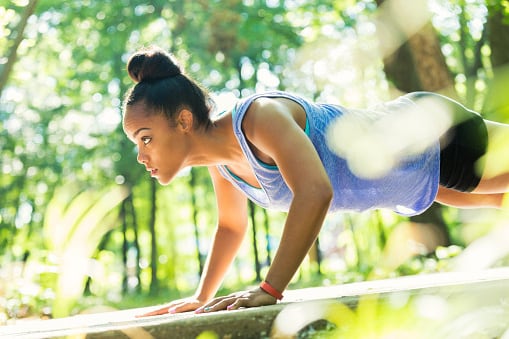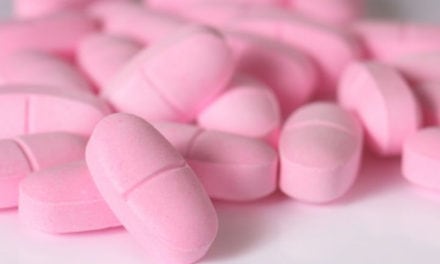
Drink enough water, and pace yourself to stay safe in the heat. (Photo: Leland Bobbe/Getty Images)
The days are long and gorgeous, and the bright summer sun beckons. But whether you are a top-notch athlete or a weekend warrior, you need to be extra careful when exerting yourself in hot weather.
“Heat injury can be life-threatening,” explains Pietro Tonino, M.D., director of sports medicine at Loyola University Health System. “If you take the right precautions, there is no reason you can’t get in some great outdoor exercise, even though the thermostat is on the rise.”
Here is Dr. Tonino’s expert advice on protecting yourself when the mercury rises, but you are determined to get in your race-walk or hike:
- Get wet: Sweat is an important part of keeping us healthy in the heat, Dr. Tonino said in a Loyola interview. It’s our body’s way of cooling off. But as we perspire, we lose necessary body fluids, which leads to dehydration. When we become dehydrated, we lose the ability to sweat appropriately and become susceptible to heat injury.
 Humid days make things worse. because humidity slows the amount of time it takes for sweat to evaporate from your skin to cool you down. When humidity is 60 percent or greater, it is difficult for sweat to evaporate into the air.
Humid days make things worse. because humidity slows the amount of time it takes for sweat to evaporate from your skin to cool you down. When humidity is 60 percent or greater, it is difficult for sweat to evaporate into the air.
- Dress right. Dark clothing absorbs heat and can drastically increases the chance of heat stress.
- Screen out sun. Exposure to sunlight increases your body temperature, so be sure to slather on sun screen and reapply it every two hours. Also look for shaded places to exercise to help keep your core temperature down.
- Go slow: Acclimatization allows our body time to adjust to the heat. Extend your warm up, take it slow at first and make sure you’re in good health before exerting yourself in the heat.
- Factor in age. Children have a more difficult time adjusting to the heat than adults do and are less effective at regulating body heat. So, take extra care with kids in the heat. Older adults also have a more difficult time sweating, cooling down and managing body heat. If you are over 65 and want to get in your activity for the day, try to take a walk in the cooler evening or early morning before 9 a.m.
- Drink up. Dehydration, even in mild levels, can hurt athletic performance. If you don’t have enough fluids, you can’t effectively cool yourself off. Drinking water is a must before you head outdoors to exercise. If you are dehydrated before beginning your exercise routine, you are at greater risk for heat injury. Make sure you are hydrated before, during and after exercising in the heat.
- Consider the impact of medication. If you take certain medications, such as diuretics for hypertension or stimulants (many diet pills, some antihistamines, for example), it can increase your risk of heat injury so check with your doctor if you are taking any medications before exercising in the heat.
- Know when to get help. The most severe type of heat injury is heat stroke, which can happen suddenly and can be deadly.
When suffering a heat stroke, your body can’t cool itself. Your core temperature can rise to 104 degrees F causing organ system failure. The symptoms of heat stroke include: confusion, throbbing headache, hot, dry skin or seizures.
“If you think someone is suffering from heat stroke, call 911 immediately” Dr. Tonino said. “Then, move them out of the sun and cool them off with cold towels, fans or an ice bath, if available.”
- Give yourself a break. If you insist on working out in the heat, take more frequents breaks than ususual to allow your body to cool down and rehydrate. Rest and rehydrate. This is essential to prevent heat injury.
Make sure you are hydrated, but not overly hydrated. Drink when you feel thirsty and monitor your urine output. The darker your urine the less hydrated you are. Drink enough fluids to keep your urine a very light color. Overhydrating can be dangerous as well. The best way to know is to listen to your body and drink when you are thirsty.
Weigh yourself before and after activity to monitor water loss. Make sure you have replaced fluids before your next exercise session.








